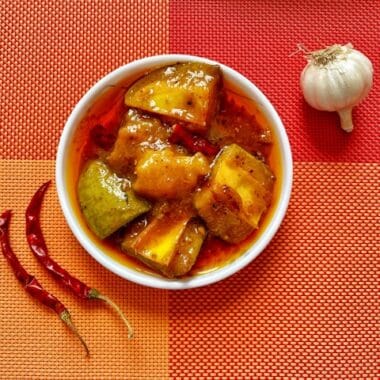Nowadays cold-pressed oils are gaining high popularity due to their health benefits, rich flavors, and environmentally friendly production process. One of the most common questions by the customers is: why are cold-pressed oils more expensive compared to refined and regular oils? The higher price tag is not simply placed; it reflects the quality of oil, production method, and many different advantages related with cold-pressed oils. As the cold pressed oils are very natural and beneficial to health the prices are affordable according to its benefits and natural gains.
There are many different reasons for high pricing of cold pressed oils. Let us know more about the reasons.
1. Traditional Extraction Process
The cold-pressed oils are extracted using traditional methods, which typically involve wooden or metal presses that operate without the application of heat or chemicals. It is one of the best oil extraction processes as no chemicals and heat are used in the extraction process. There are many benefits of using the Traditional Extraction Process. Here’s how it differs from other extraction process:
Low Yield: The oil extraction process of refined oils is different , as it involves the use of heat and chemicals to extract every bit of oil from seeds or nuts, the Traditional extraction process or cold-pressing process relies on mechanical pressure. As a result the amount of oil extracted is very less, it avoids harsh processes that might compromise the oil’s quality.
Time-Taking process: The cold-pressing process is a time taking process and also involves many labours, due to this the cost of production increases. A lot of time is invested in extraction of the minimum quantity of oil from the traditional extraction process. The labours are involved as the extraction process totally depends on mechanical forces.
2. High-Quality Raw Materials
The raw materials used in cold-pressed oils are of very high quality. These raw materials are pure and chemical free. The raw materials are of premium quality due to which the cost of selling is high.
Premium Seeds and Nuts:
Cold-pressed oil production requires high-quality seeds and nuts to ensure the oil retains its natural flavor and nutrients. These raw materials are often organically or sustainably sourced, which adds to the cost.
No Additives or Fillers: The cold-pressed oils are very different from other cheaper oils. Cold pressed oils are pure and free from additives, It ensures you get 100% natural oil.
3. Retention of Nutritional Value
The Cold-pressed oils are known for their high nutritional profile because the extraction process does not involve the use of heat and chemicals. Some of the factors of cold pressed oil extraction are:
Heat-Sensitive Nutrients Preserved: These oils are heat sensitive; only the essential fatty acids, vitamins, and antioxidants are retained, which makes cold-pressed oils healthier than refined oils. All the nutrients are preserved through the extraction process.
Higher Value for Health Benefits: Many consumers are willing to pay more for oils that support better health, immunity, and overall well-being.
4. No Chemical Refining Process
The refined oils have chemical treatments, bleaching, and deodorizing to enhance its production quantity, Preservation, and flavor uniformity, which reduces costs of refined oils. In contrast, cold-pressed oils are not refined and produced naturally.
Chemical-Free Production: As the traditional extraction process does not use chemicals it ensures the oil remains free from harmful residues, but this also means a shorter life and the need for careful handling, increasing costs.
Small-Scale Production: Many cold-pressed oils are produced in small batches to maintain quality, further adding to their exclusivity and price.
5. Lower Shelf Life
Cold-pressed oils have a shorter shelf life compared to other oils such as refined oils due to their lack of preservatives and additive chemicals. As a result they require faster consumption and careful storage.
Smaller Quantities Sold: As the production is small volumes its should be carefully handled . Due to which it is sold in less quantities as a result logistics cost increases.
6. Environmentally Friendly Practices
Cold-pressed oils are produced using eco-friendly and natural process, which may include:
Less Processing Impact: Cold-pressing methods consume less energy compared to other industrial extraction processes used for refined oils.
Sustainable Production Process: Many producers use organic and non-GMO farming practices for their raw materials, which come at a higher cost.
Support for Artisanal Producers: A minimum portion of cold-pressed oils comes from small-scale or local producers who prioritize quality over large production.
7. Artisanal and Specialty Branding
Cold-pressed oils are often marketed as artisanal products, emphasizing their purity, health benefits, and traditional extraction methods.
- Premium Packaging:
- Cold-pressed oils are frequently packaged in high-quality, eco-friendly bottles, such as glass or BPA-free plastic, which adds to the cost.
- Niche Market Appeal:
- Targeting health-conscious consumers, the branding and marketing costs are higher to highlight the unique attributes of the oil.
8. Consumer Demand for Healthier Alternatives
As more consumers become aware of the health hazards associated with refined oils, there’s a growing demand for cold-pressed which are natural. The demand is increasing rapidly as the customers are getting benefits of using the cold pressed oils.
Increased Demand: AS the popularity of natural and organic products is increasing, cold-pressed oils are chosen for health benefits , which can lead to higher prices due to limited supply.
Cold-Pressed Oils vs. Refined Oils: A Quick Comparison
| Feature | Cold-Pressed Oils | Refined Oils |
| Extraction Process | Mechanical pressure, no heat/chemicals | Heat and chemical solvents |
| Nutritional Value | High, with preserved nutrients | Reduced due to heat and processing |
| Shelf Life | Shorter, requires careful storage | Longer, due to preservatives |
| Price | Higher, due to quality and method | Lower, due to mass production |
| Flavor | Natural and distinct | Neutral or artificially enhanced |
Are Cold-Pressed Oils Worth the Price?
Yes, cold-pressed oils are worth the prices. They are more expensive, but they offer many benefits in terms of flavor, health, and environmental impact. Here’s why they are a beneficial investment:
Health Benefits: There are many health benefits such as they store essential nutrients like omega-3 fatty acids, antioxidants, and vitamins that helps for better heart health, boost immunity, and support overall body functionality.
Authentic Flavor: The natural, unadulterated flavor of cold-pressed oils enhances the taste of dishes, especially when used in dressings, sautés, or dips.
Sustainability: By choosing cold-pressed oils, you’re supporting eco-friendly practices and small-scale producers.
Chemical-Free Cooking: Cold-pressed oils provide peace of mind knowing you’re cooking with a product free from harmful chemicals and additives.
Conclusion
Cold-pressed oils might come with a higher price tag, but their numerous benefits make them a valuable addition to any kitchen. From their traditional extraction process to their unmatched nutritional value, these oils are an investment in health and quality. Brands like Oylar.in ensure that their cold-pressed oils are made with care, using premium raw materials and eco-friendly practices.
When you choose cold-pressed oils, you’re not just paying for a product—you’re investing in a healthier lifestyle, sustainable practices, and the authentic taste of nature. While the cost may be higher, the long-term benefits far outweigh the price difference, making them a worthy choice for conscious consumers.










